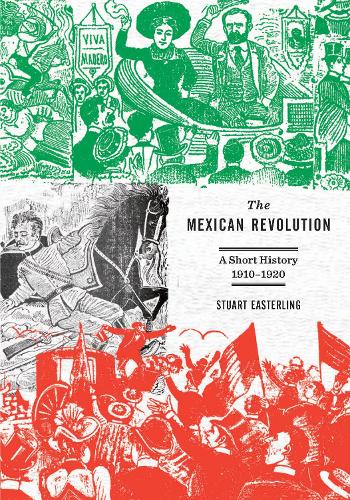
The Mexican Revolution: A Short Introduction
(Paperback)
Publishing Details
The Mexican Revolution: A Short Introduction
By (Author) Stuart Easterling
Haymarket Books
Haymarket Books
5th February 2013
United States
Classifications
General
Non Fiction
History of the Americas
972.0816
Physical Properties
Paperback
168
Width 140mm, Height 191mm
196g
Description
Long after its outbreak, the Revolution remains the defining moment in Mexico's modern history. Yet elements of its history continue to be debated today. Who were the winners and losers Why was there so much internal conflict and did its heroes accomplish their goals This title addresses these vital questions in an accessible style, aimed at students and general readers. Although this acts as an excellent general introduction to the key events of the Mexican revolution, it maintains its academic rigour throughout, making a significant contribution to academic debate.
Reviews
The Mexican Revolution: A Short History is an excellent account and analysis of the Mexican Revolution, its background, its course, and its legacy. Erudite and theoretically sophisticated, yet broadly accessible and completely jargon free, this study combines qualities not usually found in a single volume. Stuart Easterling has made an important contribution to the study of revolutions. A must read! Samuel Farber, author, Cuba Since the Revolution of 1959: A Critical Assessment The Mexican Revolution is a powerful work of historical synthesis. Slicing to the foundational bones of the revolutions dramatic arc, Easterlings precise, surgical narrative offers a remarkably clear rendering of the conflicting class forces at play and the historical personalities brought to life through their encounter. Backdrops of uneven capitalist development and complex configurations of political authority, power, and abuse are overlaid with vivid portraits of the epochs leading figures Villa, Zapata, Obregn, and Carranza. Jeffery R. Webber, Queen Mary, University of London, author, From Rebellion to Reform in Bolivia.
The Mexican Revolution: A Short History is an excellent account and analysis of the Mexican Revolution, its background, its course, and its legacy. Erudite and theoretically sophisticated, yet broadly accessible and completely jargon free, this study combines qualities not usually found in a single volume. Stuart Easterling has made an important contribution to the study of revolutions. A must read! Samuel Farber, author, Cuba Since the Revolution of 1959: A Critical Assessment The Mexican Revolution is a powerful work of historical synthesis. Slicing to the foundational bones of the revolutions dramatic arc, Easterlings precise, surgical narrative offers a remarkably clear rendering of the conflicting class forces at play and the historical personalities brought to life through their encounter. Backdrops of uneven capitalist development and complex configurations of political authority, power, and abuse are overlaid with vivid portraits of the epochs leading figures Villa, Zapata, Obregn, and Carranza. Jeffery R. Webber, Queen Mary, University of London, author, From Rebellion to Reform in Bolivia.
